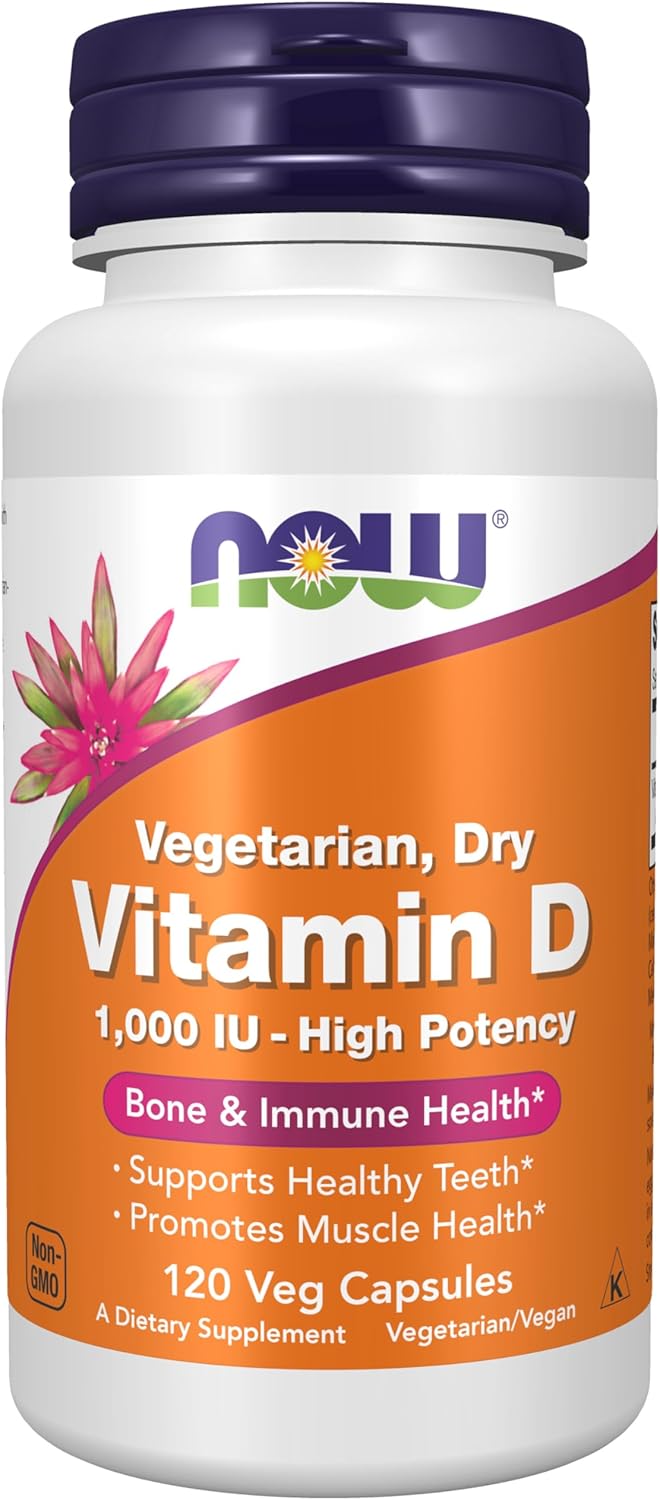






Price: $9.99 - $6.71
(as of Apr 07, 2025 06:01:02 UTC - Details)
The Best Way to Take Vitamin D: A Comprehensive Guide
Introduction
Vitamin D is often referred to as the "sunshine vitamin" because our bodies produce it when exposed to sunlight. However, many people struggle to get enough vitamin D through sun exposure and diet alone. If you’re wondering what’s the best way to take vitamin D, you’re not alone! In this article, we’ll explore various methods of supplementation, the benefits of vitamin D, and how to ensure you’re getting enough of this essential nutrient. Let’s dive in!
Understanding Vitamin D and Its Benefits
Why Is Vitamin D Important?
Vitamin D plays a crucial role in maintaining bone health, supporting immune function, and regulating calcium levels in the body. Without adequate vitamin D, you may be at risk for bone-related conditions like osteoporosis and rickets. Additionally, research suggests that vitamin D might play a role in mood regulation and overall well-being.
What Are the Different Types of Vitamin D?
There are two main types of vitamin D: D2 (ergocalciferol) and D3 (cholecalciferol). D2 is derived from yeast and mushrooms, while D3 is obtained from animal sources like fish liver oil and egg yolks. Both forms can help increase your vitamin D levels, but D3 is generally considered more effective for raising and maintaining those levels in the body.
How to Take Vitamin D Supplements
1. Choosing the Right Form of Vitamin D
When it comes to supplementation, you have several options. Vitamin D supplements come in various forms, including soft gels, capsules, liquids, and gummies. If you’re wondering what’s the best way to take vitamin D, consider your preferences. For instance, if you dislike swallowing pills, gummy vitamins might be a better fit for you.
2. Timing Matters: When to Take Vitamin D
The timing of your vitamin D intake can influence its absorption. Fat-soluble vitamins like vitamin D are best absorbed when taken with a meal that contains fat. For optimal results, consider taking your vitamin D supplement with breakfast or lunch. This ensures that your body can absorb it effectively.
3. Dosage: How Much Vitamin D Do You Need?
Determining the right dosage of vitamin D can be tricky. The recommended dietary allowance (RDA) varies based on age, sex, and life stage. Generally, adults require between 600 to 800 IU (International Units) daily. However, some individuals may need higher doses, especially if they have low blood levels of vitamin D. It’s best to consult with a healthcare professional to determine the right dosage for you.
Food Sources of Vitamin D
4. Natural Food Sources for Vitamin D
While supplements are a convenient option, you can also increase your vitamin D intake through food. Fatty fish like salmon, mackerel, and sardines are excellent sources. Additionally, foods like fortified milk, orange juice, and cereals can help boost your vitamin D levels. Incorporating these foods into your diet can be a delicious way to meet your needs.
5. Sun Exposure: The Natural Way to Get Vitamin D
Sunlight is one of the best natural sources of vitamin D. Spending just 10 to 30 minutes in the sun several times a week can help your body produce adequate levels. However, factors such as skin type, location, and time of year can affect how much vitamin D you synthesize. If you live in a region with limited sunlight, you may need to rely more on supplements or dietary sources.
Signs of Vitamin D Deficiency
6. Recognizing Deficiency Symptoms
It’s essential to be aware of the signs of vitamin D deficiency. Common symptoms include fatigue, bone pain, muscle weakness, and mood changes. If you suspect you might be deficient, it’s crucial to get your levels checked through a blood test. Early detection can help prevent long-term health issues.
Safety and Considerations
7. Possible Side Effects of Vitamin D
While vitamin D is generally safe when taken in appropriate doses, excessive intake can lead to toxicity. Symptoms of vitamin D toxicity include nausea, vomiting, weakness, and serious complications like kidney damage. Always adhere to the recommended dosage and consult with a healthcare provider if you have concerns.
8. Interactions with Medications
Vitamin D can interact with certain medications, such as steroids and weight loss drugs. If you’re on medication, it’s essential to discuss your vitamin D supplementation with your doctor to avoid any potential issues.
Conclusion
In conclusion, the best way to take vitamin D involves understanding your body’s needs, choosing the right form, and considering timing and dosage. Whether you prefer supplements, food sources, or sunlight, finding the method that works best for you is key to maintaining optimal health. Remember, vitamin D is not just a vitamin; it’s a crucial component of your overall well-being. Make sure to monitor your levels and consult with a healthcare professional to ensure you’re getting enough of this essential nutrient. With the right approach, you can enjoy the numerous benefits that vitamin D has to offer!
HIGH POTENCY/VEGETARIAN/SUPPORTS IMMUNE SYSTEM: Vitamin D-2, or ergocalciferol, is a vegetarian based form of vitamin D that can help to maintain optimal levels of vitamin D in the body
HELPS MAINTAIN STRONG BONES: Vitamin D enhances the uptake of calcium from the diet, is critical for bone health, and supports the immune system
CLASSIFICATIONS/CERTIFICATIONS: Vegan, Kosher, Non-GMO, Halal
GMP Quality Assured: NPA A-rated GMP certification means that every aspect of the NOW manufacturing process has been examined, including our laboratory/testing methods (for stability, potency, and product formulation)
Packaged in the USA by a family owned and operated company since 1968
